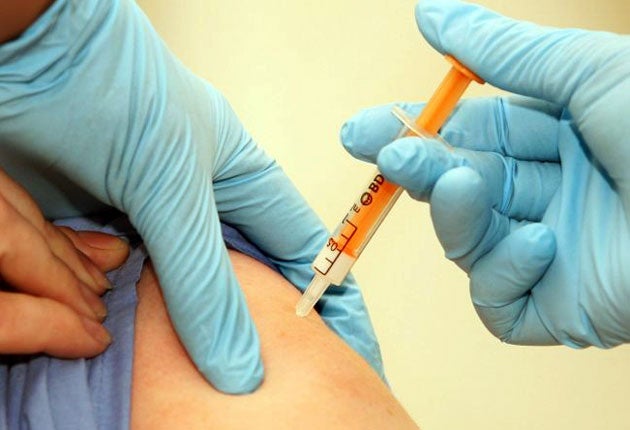Swine flu: Three hospital wards closed in Leicester after 14 cancer patients diagnosed with virus
Once H1N1 was discovered, the patients were quickly isolated and given antiviral drugs.

Your support helps us to tell the story
From reproductive rights to climate change to Big Tech, The Independent is on the ground when the story is developing. Whether it's investigating the financials of Elon Musk's pro-Trump PAC or producing our latest documentary, 'The A Word', which shines a light on the American women fighting for reproductive rights, we know how important it is to parse out the facts from the messaging.
At such a critical moment in US history, we need reporters on the ground. Your donation allows us to keep sending journalists to speak to both sides of the story.
The Independent is trusted by Americans across the entire political spectrum. And unlike many other quality news outlets, we choose not to lock Americans out of our reporting and analysis with paywalls. We believe quality journalism should be available to everyone, paid for by those who can afford it.
Your support makes all the difference.Three wards have been closed off at Leicester Royal Infirmiary (LRI) after fourteen cancer pateints have contracted H1N1, commonly known as swine flu.
Three other patients at Leicester's Glenfield hospital, two adults and a child, are also being treated for the virus, Leicester Mercury reports.
Once H1N1 was discovered at LRI, the patients were quickly isolated and given antiviral drugs.
Dr Philip Monk, a communicable disease consultant with Public Health England said: "On Monday, it was thought three people on the wards might have flu, and because these patients have very little immunity, it was decided to swab all patients and 14 were confirmed as positive."
The Telegraph reports that cleaning has been increased in the affected areas and clinics have been set up to vaccinate hospital staff.
Visitors with cold and flu symptoms such as a "cough, runny nose or high temperature" are being asked to stay away from Leicester hospitals to protect patients.
Dr Monk said the number of cases across the East Midlands and the country have been increasing over the past three weeks.
He added added: "This year's flu vaccination is a good match for H1N1, and is the best way of stopping it from spreading.
"People can be quite poorly if they get this flu, but if they have had it they won't get it again because they have built up an immunity."
The 2009 swine flu epidemic killed over 100 people in Mexico.
Join our commenting forum
Join thought-provoking conversations, follow other Independent readers and see their replies
Comments